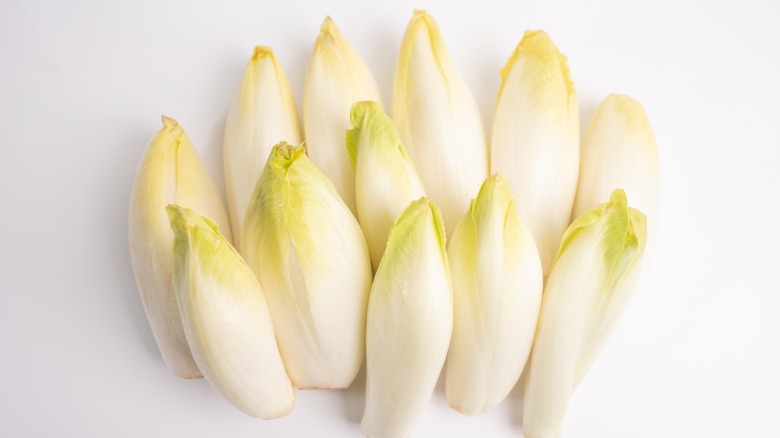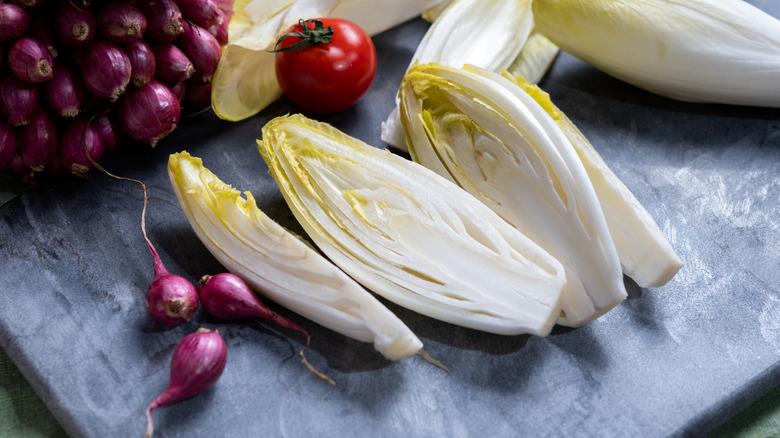The Unexpected Health Benefits Of Endives
Endives, also known as Cichorium endivia, are a type of leafy vegetable that belongs to the chicory family. They have a slightly bitter taste and are often used in salads or as a garnish. According to NC State University, endives can be eaten raw or cooked and can be paired with a variety of flavors to create delicious dishes. In addition to being nutritious, endives are also a very attractive vegetable. Their tight, compact heads and delicate leaves make them a popular choice for garnishes and presentations.
In terms of nutritional benefits, endives are generally low in calories and high in vitamins and minerals, making them a healthy addition to any diet. According to WebMD, half a cup of chopped endives contains four calories. Overall, they are versatile, nutritious, and can be enjoyed in various ways. Whether you want to add some flavor and nutrition to your salad or try a new side dish, these leafy vegetables are a great choice.
Key nutritional benefits of endives
One of the most significant nutritional benefits of endives is their high fiber content. In a 2007 study published by the Faculty of Agrobiology, Food, and Natural Resources at the Czech University of Life Sciences, endives were noted for their high fiber content. According to the Mayo Clinic, fiber is important for maintaining a healthy digestive system. It can help lower cholesterol levels and prevent constipation. Half a cup of endives contains about 0.8 grams of fiber, per WebMD.
Endives are a source of numerous vitamins and minerals. They contain small amounts of vitamin C, A, and potassium, per the U.S. Department of Agriculture (USDA). Vitamin C is an antioxidant that helps boost the immune system and promote healthy skin. At the same time, vitamin A is important for bone health, and potassium helps regulate blood pressure, per the Harvard Medical School. Endives are also an excellent source of vitamin K. A total of 100 grams of raw endives offers approximately 231 micrograms (µg) of vitamin K, per the USDA. According to the Harvard T.H. Chan School of Public Health, vitamin K is essential for blood clotting and bone health.
In addition to their vitamins and minerals, endives are a good source of antioxidants, says WebMD. Antioxidants help to neutralize harmful free radicals in the body, which can contribute to the development of chronic diseases, such as cancer and heart disease, per the Mayo Clinic.
Types of endives
According to WebMD, there are various types of endives. Belgian endives, also known as Witloof chicory or Cichorium intybus, are grown from the roots of the chicory and are paler in color. They taste slightly bitter and are often used in salads or as garnish. Endives are typically grown in the dark, which results in the development of white leaves, says WebMD.
Other varieties include the curly and escarole endives. The curly endive is also known as frisée or Cichorium endivia, and it has frilly, curly leaves. The escarole endive has broad leaves and a slightly bitter taste than the curly type.
Overall, the endive is a nutritious and healthy vegetable that can be enjoyed in a variety of ways. It is an excellent source of fiber, vitamin K, folate, and other vitamins and minerals. Endives are also low in calories and high in antioxidants and phytochemicals, making them a great choice for those looking to improve their overall health.



